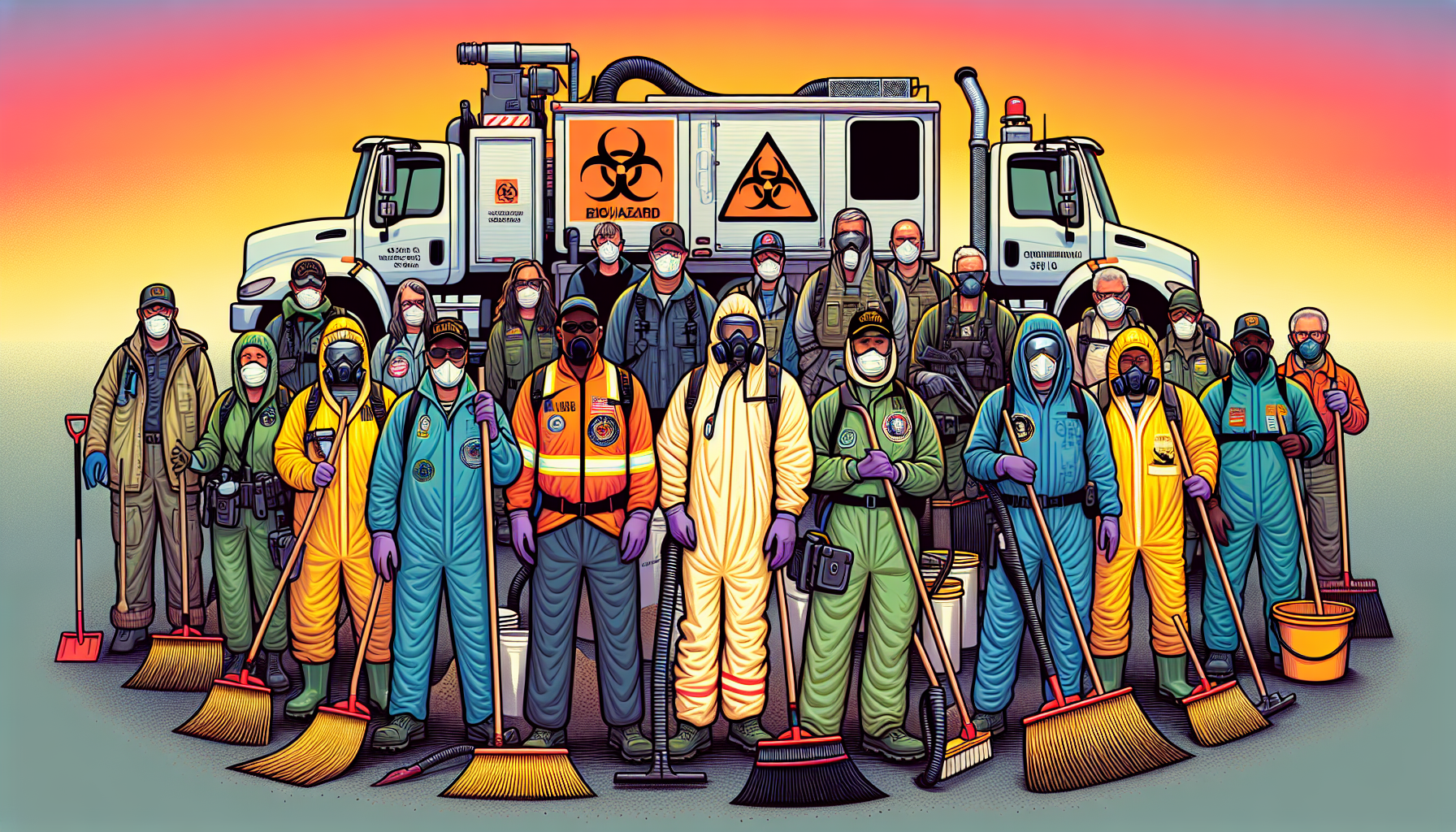Definition
The Environmental Hazards Response term in VA benefits refers to the assistance provided to veterans who have been exposed to harmful environmental hazards during their military service. This response includes health care coverage, disability compensation, and necessary screenings for potential service-related conditions caused by these hazards. The VA aims to address the health concerns of veterans who have encountered toxic substances, such as Agent Orange exposure, contaminated drinking water, or radiation from various sources.
Key Takeaways
- Environmental Hazards Response refers to the assistance and compensation provided to veterans who have been exposed to hazardous materials, toxins, or other environmental hazards during their military service.
- These hazards may include exposure to Agent Orange, radiation, contaminated water, and burn pits, which can lead to various health issues or disabilities for veterans. VA benefits aim to cover the costs of medical care, disability compensation, and other support services related to these environmental hazards.
- Veterans who believe they have been exposed to environmental hazards during their service must provide evidence of exposure, documentation of related health issues, and demonstrate a connection between the exposure and the health issues to qualify for these benefits. Specific requirements and processes may vary depending on the type of hazard and individual circumstances.
Importance
The term Environmental Hazards Response holds significant importance in the context of VA benefits because it refers to the process through which the Department of Veterans Affairs (VA) examines and identifies potential health risks due to exposure to environmental hazards faced by veterans during their military service.
These hazards may include chemicals, toxins, or other harmful substances that could result in long-term health effects for affected personnel.
By recognizing these hazards and responding appropriately, the VA is able to provide essential medical care, compensation, and necessary support services to veterans suffering from service-related illnesses or disabilities that were caused directly by their exposure to such environmental hazards.
This ensures that veterans receive the appropriate assistance and acknowledgment for their sacrifices made during service, ultimately improving their quality of life and wellbeing.
Explanation
The purpose of Environmental Hazards Response within VA benefits is to support and protect veterans who have been exposed to hazardous substances during their military service. This program aims to address the long-term health effects that may arise from such exposure, ensuring that veterans receive the necessary health care and compensation benefits they are entitled to.
The U.S. Department of Veterans Affairs (VA) recognizes that certain hazardous materials, such as radiation, toxic chemicals, and asbestos, can potentially cause adverse health consequences for service members, and has established the Environmental Hazards Response program to provide comprehensive assistance for affected veterans and their families.
In order to fulfill its mission, the Environmental Hazards Response program focuses on delivering tailored assistance for veterans impacted by different hazards. This includes offering disability compensation for health issues related to exposure, health care services for medical conditions associated with environmental hazards, and extensive research to better understand the causes and effects of these health problems.
Furthermore, the VA constantly reviews and updates the list of presumptive conditions and qualifying exposures, making it easier for veterans to access the benefits they deserve. By providing a well-rounded approach, the Environmental Hazards Response program underscores the VA’s commitment to serving the needs of veterans affected by hazardous substances during their service, and ensuring they receive the support they need to manage and overcome potential health challenges.
Examples of Environmental Hazards Response
Agent Orange Exposure in Vietnam War Veterans: During the Vietnam War, the United States military sprayed millions of gallons of Agent Orange, a toxic herbicide, to eliminate forest cover for opposition forces. This resulted in widespread exposure to the chemical among the military personnel who served in Vietnam. The Department of Veterans Affairs (VA) has since recognized that exposure to Agent Orange is associated with various illnesses, including certain cancers and neurological disorders. Veterans who suffer from these conditions are eligible for VA benefits, including disability compensation, medical care, and vocational rehabilitation services.
Gulf War Syndrome: The Gulf War Syndrome refers to a set of illnesses experienced by veterans of the 1990-1991 Gulf War. These illnesses can include fatigue, headaches, joint pain, indigestion, insomnia, dizziness, and respiratory disorders, among others. It is believed that exposure to environmental hazards such as smoke from oil well fires, depleted uranium, and chemical warfare agents during the war may have contributed to the development of these health issues. In response, the VA offers benefits such as health exams, disability compensation, and access to specialized medical care for Gulf War veterans suffering from these illnesses.
Camp Lejeune Water Contamination: From 1953 to 1987, the drinking water at the Marine Corps Base Camp Lejeune in North Carolina was contaminated with volatile organic compounds, mainly trichloroethylene, perchloroethylene, benzene, and vinyl chloride. This contamination exposed military personnel and their families to hazardous chemicals, potentially increasing the risk of various health issues, including several types of cancers and other disorders. The VA acknowledges the potential health risks of the Camp Lejeune water contamination and provides benefits such as healthcare services and disability compensation to eligible veterans who served at Camp Lejeune during the affected period and experienced health problems as a result of the contamination.
Environmental Hazards Response FAQ
1. What are the potential environmental hazards that veterans may face?
Veterans may face exposure to various environmental hazards during their service, such as hazardous chemicals, asbestos, radiation, contaminated water, and other hazardous materials. These exposures can lead to potential health risks in the future.
2. What is the Environmental Hazards Response Program?
The Environmental Hazards Response Program is designed to provide support and assistance to veterans who were exposed to environmental hazards during their military service. The program helps veterans and their families by providing information, resources, and support for navigating the VA benefits system related to environmental exposures.
3. How can I apply for benefits related to environmental hazard exposure?
Veterans who believe they were exposed to environmental hazards during their service can apply for benefits by submitting a claim for disability compensation along with evidence of their exposure and any related medical condition. You can submit your claim online, through a Veterans Service Organization, or via mail.
4. What benefits are available for veterans who were exposed to environmental hazards?
Benefits for veterans who were exposed to environmental hazards may include healthcare, disability compensation, survivor benefits, and vocational rehabilitation and employment services. The specific benefits available to each veteran will depend on the type and severity of their exposure and related conditions.
5. What if my claim related to environmental hazard exposure is denied?
If your claim is denied, you have the right to appeal the decision. You can work with a Veterans Service Organization or a VA-accredited attorney or agent to prepare and submit your appeal. The appeal process may include filing a Notice of Disagreement with the VA, attending hearings, and providing additional evidence to support your claim.
Related VA Benefit Terms
- Agent Orange Exposure
- Radiation Exposure Compensation
- Gulf War Illness
- Contaminated Water at Camp Lejeune
- Military Asbestos Exposure
Sources for More Information
- U.S. Department of Veterans Affairs
- U.S. Environmental Protection Agency
- Centers for Disease Control and Prevention
- Agency for Toxic Substances and Disease Registry (ATSDR)
 Benefits.com Advisors
Benefits.com Advisors
With expertise spanning local, state, and federal benefit programs, our team is dedicated to guiding individuals towards the perfect program tailored to their unique circumstances.
Rise to the top with Peak Benefits!
Join our Peak Benefits Newsletter for the latest news, resources, and offers on all things government benefits.





















